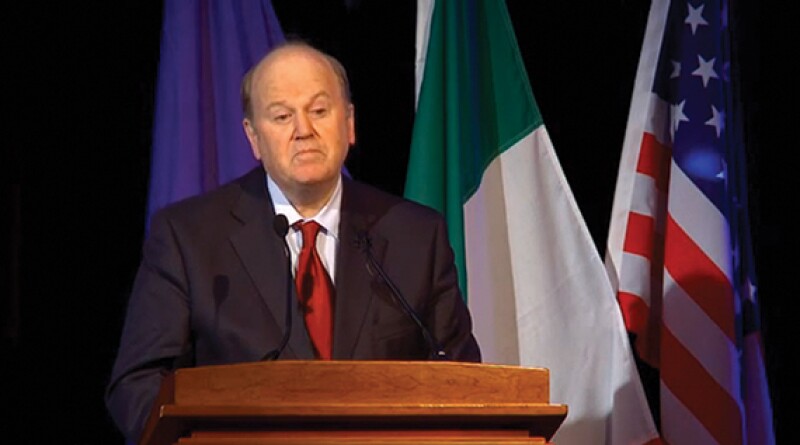
|
Michael Noonan was also in the Global Tax 50 2014, 2013, and 2011 |
While most finance ministers would be happy to collect €13 billion ($14.5 billion) in taxes from a multinational company, Michael Noonan is not one of them. The Apple case was one of 2016's biggest tax-related dispute and it received even more attention after Ireland said it "disagreed profoundly" with the European Commission's decision that Apple had received illegal tax benefits and should pay billions in back taxes to Ireland.
After the European Commission's attack on the "double Irish" in 2014, a strategy used by many multinationals to lower their European tax bills, the Apple decision was a big blow to the country, which has the lowest corporate tax rate among EU member nations at 12.5%.
"The key issue is to defend our right as an independent country with control over our tax system and how it is applied by Revenue and Revenue is adamant there was no selective treatment," Michael McGrath, finance spokesperson for the Fianna Fáil party told Irish broadcaster RTE after the Apple decision was announced. Noonan added that it was "necessary to defend the integrity of our tax system; to provide tax certainty to business; and to challenge the encroachment of EU state aid rules into the sovereign member state competence of taxation".
"Defend" is exactly what Noonan intends to do. After gaining approval from the Irish parliament to appeal the Commission's state aid decision, an appeal was filed in the European Courts on November 9. "The government has decided unanimously to bring an appeal before the European Courts to challenge the European Commission's decision on the Apple State aid case," Noonan said. "I believe that there are some very important principles at stake in this case and that a robust legal challenge before the Courts is essential to defend Ireland's interests. The full amount of tax was paid in this case and no state aid was provided. Ireland did not give favourable tax treatment to Apple. Ireland does not do deals with taxpayers."
Speaking on Bloomberg TV, Noonan said there are two phases to the appeal: the ordinary European court and then the European Court of Justice. "It will probably take four years, probably more."
In addition to this, in this year's budget Noonan announced that he would reduce the burden on taxpayers by just under €300 million ($330.2 million). He also published an update on the government's international tax strategy to highlight the progress made over the past year and how the country's corporate tax regime "meets the highest standards in tax transparency" in the wake of recent issues. However, finance minister remained firm that Ireland's very low corporate tax rate of 12.5% would not be changed, stating that "nobody is asking for it to be changed".
Separately, he also submitted proposals to parliament on September 6, amending Ireland's Section 110 tax regime to charge a potential 25% tax on future profits arising for overseas investors in Irish loan portfolios.
The budget, additional tax changes, and the controversial Apple case, secured Noonan a place in this year's Global Tax 50.
Undoubtedly, 2017 will be a crucial year for Noonan and his government. Defending Ireland's tax system and its attractiveness to multinational enterprises worldwide will take priority when the court case against the Commission's Apple decision is heard. Noonan has used many opportunities to defend the tax system, but the battle will only get tougher in the year ahead.
The Global Tax 50 2016 |
|
|---|---|
The top 10 • Ranked in order of influence |
|
2. The International Consortium of Investigative Journalists |
|
3. Brexit |
4. Arun Jaitley |
5. Jacob Lew |
|
10. Donald Trump |
|
The remaining 40 • In alphabetic order |
|









